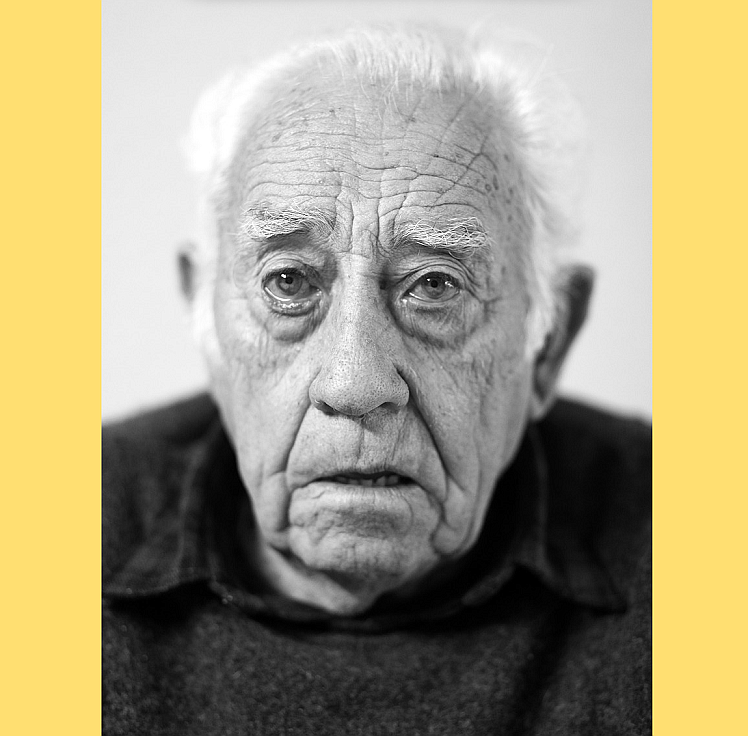Fighting Dementia and Age Stigma
October 17, 2023 at 10:20 a.m.
...by Genevieve Wanucha, Public Information Specialist, UW Memory and Brain Wellness Center, and Paige Bartlett, Public Information Specialist, UW School of Nursing de Tornyay Center for Healthy Aging
 Sarah McKiddy is a PhD student in nursing science and a predoctoral scholar with the UW School of Nursing de Tornyay Center for Healthy Aging
Sarah McKiddy is a PhD student in nursing science and a predoctoral scholar with the UW School of Nursing de Tornyay Center for Healthy Aging
“I noticed that music communicates and evokes memories in a very different, profound way than verbal means,” said McKiddy, who is a PhD student in nursing science and a predoctoral scholar with the UW School of Nursing de Tornyay Center for Healthy Aging. These experiences turned into a lifelong passion for working with older adults.
Through coursework and conversations with her teachers and classmates, she became more and more interested in ageism.
Ageism happens when people face stereotypes, prejudice, or discrimination because of their age. One common stereotype is that older adults are frail and declining. Think of phrases like, “past one’s prime.”
To explore ageism, McKiddy started an interview series, asking people of different ages and backgrounds about how they see ageism. It initially started on the de Tornyay Center website and later continued in the local newsletter AgeWise King County, in collaboration with fellow de Tornyay Center predoctoral scholar, Priscilla Carmiol-Rodriguez.
The more she talks to people about ageism, the more she’s seen how ageism affects people across the lifespan and how unchallenged it is in our society.
“It is the one topic that essentially unites us,” McKiddy said. “Because we’ve probably been perpetrators of it, and we’ve received it. We’ve definitely internalized it towards ourselves and then channeled it towards others.”
McKiddy has turned her own interest in ageism into activism. She led a talk on the topic at the UW School of Nursing’s Nursing Science Scholarship Day, and held an AARP Disrupt Aging Classroom, a program that trains volunteer facilitators to deliver an interactive curriculum that asks students to think about their perceptions of aging and the growing aging population. She also created posters about ageism for professional conferences, in collaboration with UW Research Coordinator Aaron Rosser.
One way to challenge ageism is to question the popular term “successful aging,” referencing people who maintain health until late in life or become “super-agers.” When we talk about “successful aging”, we often have a specific image of health in older age, McKiddy points out. “Aging might look and feel different for someone living with a chronic illness or disability, but that doesn’t mean they can’t participate in and live a meaningful and fulfilling life.”
More than six million Americans over the age of 65 are living with Alzheimer’s disease, which eventually causes dementia. As the Momentia Seattle dementia-friendly movement has shown, people living with dementia benefit from being active members in their communities. They retain many creative and personal strengths even amid the challenges of the disease. But fear and negativity around this condition can discourage friends and family from engaging with their loved one or seeking out important resources and support.
In McKiddy’s mind, the two issues of dementia stigma and ageism go hand in hand.
“Both for me boil down to embracing the dignity, respect and intrinsic value of individual lives despite perceived differences,” she said.
Working alone, it’s not easy to build awareness about dementia and counter stigma. Join a supportive community by becoming a Dementia Friend through Dementia Friends Washington, led by the UW Memory and Brain Wellness Center, on behalf of the Dementia Action Collaborative.
A Dementia Friend attends an information session to learn key messages about dementia. They commit to a small action step to support people living with dementia in the local community - such as being more patient, taking a meal to a caregiver, or driving a friend to a doctor’s appointment.






